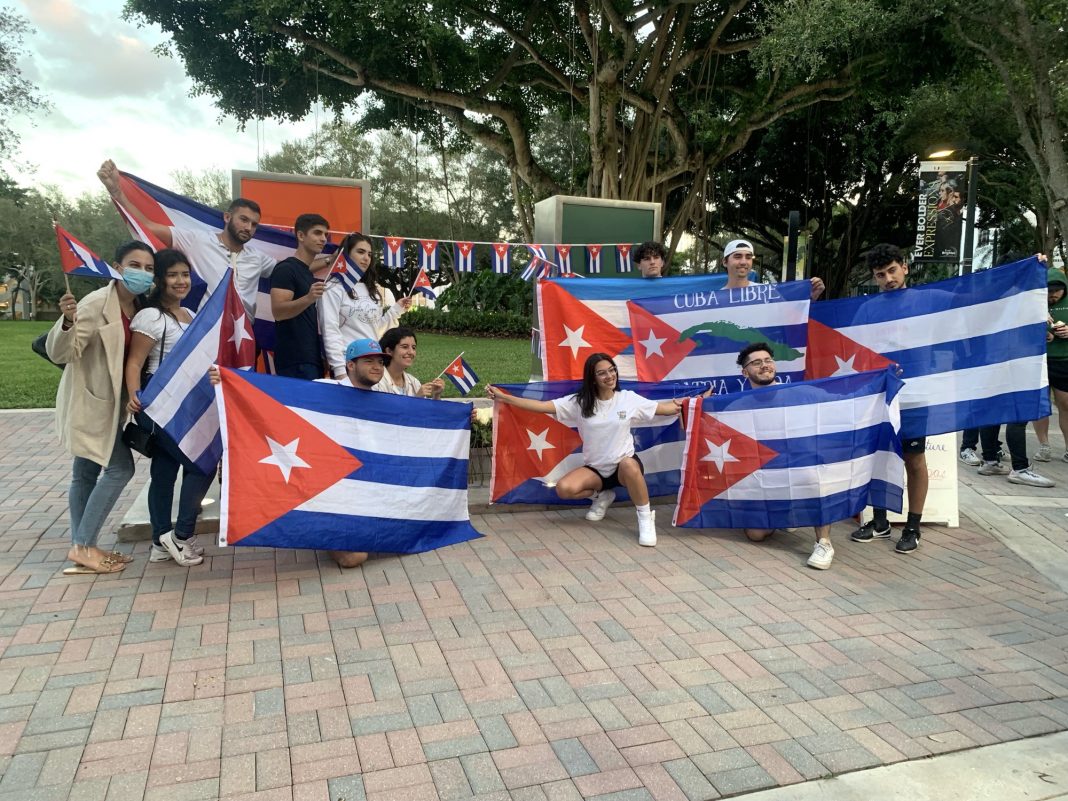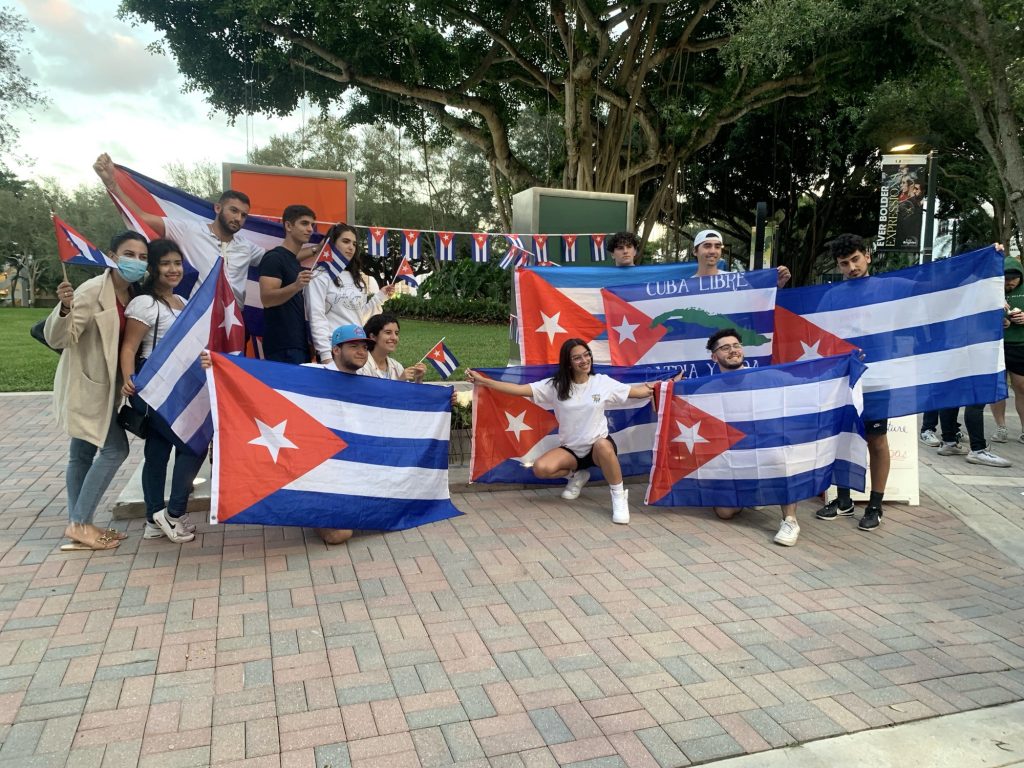
On Monday evening, the University of Miami students gathered around the U statue in solidarity with the #15N protests in Cuba. Much of the crowd dressed in white as people in Cuba, symbolizing poverty, humility and peace.
Stephan Rasco, a freshman studying history and economics, opened the event with a chant.

Rasco shouted “libertad” and the crowd responded with a roaring “Si Cuba está en la calle, Miami también” (Freedom. If Cuba is on the streets, Miami is too).
Rasco followed the chant with a speech.
“To the brave souls that have found themselves in prison and tortured for being anti-revolutionaries,” Rasco said. “We pray for them and we hope to honor the sacrifices they made so that ‘Cuba Libre’ can be more than the name of a cocktail.”
Afterward, students held a moment of silence, followed by members of the crowd placing white roses at the foot of the U statue. Students placed them in solidarity with the political prisoners held in Cuba.
Following the “Once de Julio Movements” in Cuba, hundreds of political dissidents remain imprisoned. The most recent protests were the largest seen since the 1959 Cuban revolution. Current demonstrators said that they aim to show that the fight continues for human rights and freedom on the island.
“As the grandson of exiles, I am supporting the movement back towards democracy in Cuba, knowing full well that people are going to die,” said Marcel van Hemeret, a sophomore at UM majoring in international studies and geography. “I want to do whatever I can in the U.S. to show my support for what’s going on in the island.”
On Nov. 15, Cuba reopened its borders to international tourists and eased restrictions on travel. As Cuba welcomed an influx of tourists for the first time in decades, protesters on the streets of Cuba aimed to draw attention to persisting issues.
However, protests in Cuba were sparse.
“Several weeks of steady government criticism of the marches and intimidation of the protest’s leaders, followed by targeted detentions and house arrests yesterday, prevented the protests from unfolding as organizers had planned,” said Professor Michael Bustamente, an author, UM professor and researcher of Cuban affairs. “We will never know how many Cubans might have participated otherwise.”
In Miami, it is easier to hold protests thanks to liberties guaranteed in the U.S. Constitution.
The protests at UM were planned with short notice. The idea came during Saturday, Nov. 14 and final plans were only secured in the afternoon of Nov. 15, a few hours before the event.
Organizers appreciated the university’s assistance and flexibility in making this event possible.
“It was a little last minute,” Erick Martin, a senior majoring in health science, said. “Thankfully Dean Holmes really helped us out with everything. He helped us get the U statue and the microphone and speaker.”
This isn’t the first time the university has shown solidarity with the Cuban people. In mid-July, when Cubans on the island and around the world protested, Julio Frenk, president of the University of Miami, issued a statement:
“In a city of immigrants fortunate to call the United States home, the powerful notion that true freedom cannot survive absent the mutually supportive coexistence of homeland and life — ‘patria y vida’ — is one we understand at the most profound levels, no matter our nationality,” Frenk said.
Within Miami, 54% of the population is Cuban. However, only 28% of the undergraduate class of UM is hispanic, meaning they have heritage from a Spanish speaking country.
“There are a lot of students at UM who are not Cuban, so any sort of bringing awareness to the issue is really important,” said Kat Hernandez, a freshman double majoring in history and international studies.
The university is well known across Miami and inextricably tied to the city.
“We’re doing it with UM specifically because of everything the school means to the city and the city means to Cubans across the world,” Rasco said.
These protests carry a lot of heavy emotions, especially for those with Cuban heritage.
“To me, it’s like fighting back for a home that I lost because as grateful as I am to be here and not be over there right now, deep in any Cuban’s heart, we want to be on the island. That is our home,” Rasco said.
Going forward, the picture remains unclear in Cuba.
“With the pandemic under better control thanks to Cuban-made vaccines, Cuba’s government certainly hopes to turn the page on a period of economic crisis and rising dissent,” Bustamente said. “It is not clear to me if they will get their wish. In the short term, opposition activists will continue to attempt to hold the government’s feet to the fire and demand the release of those protesters still jailed from July 11 and now, Nov. 15.”





